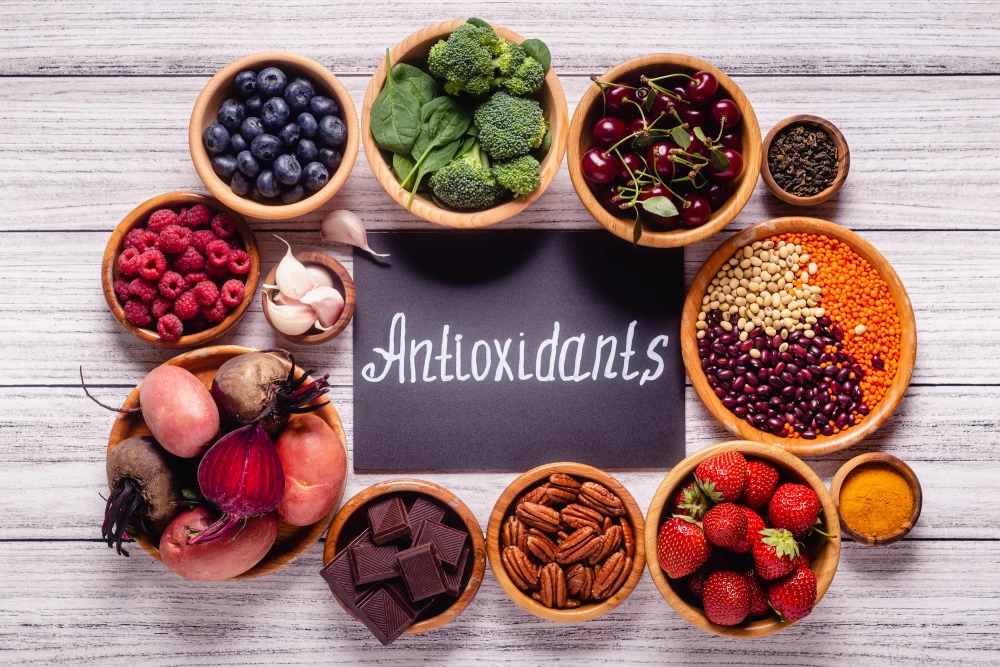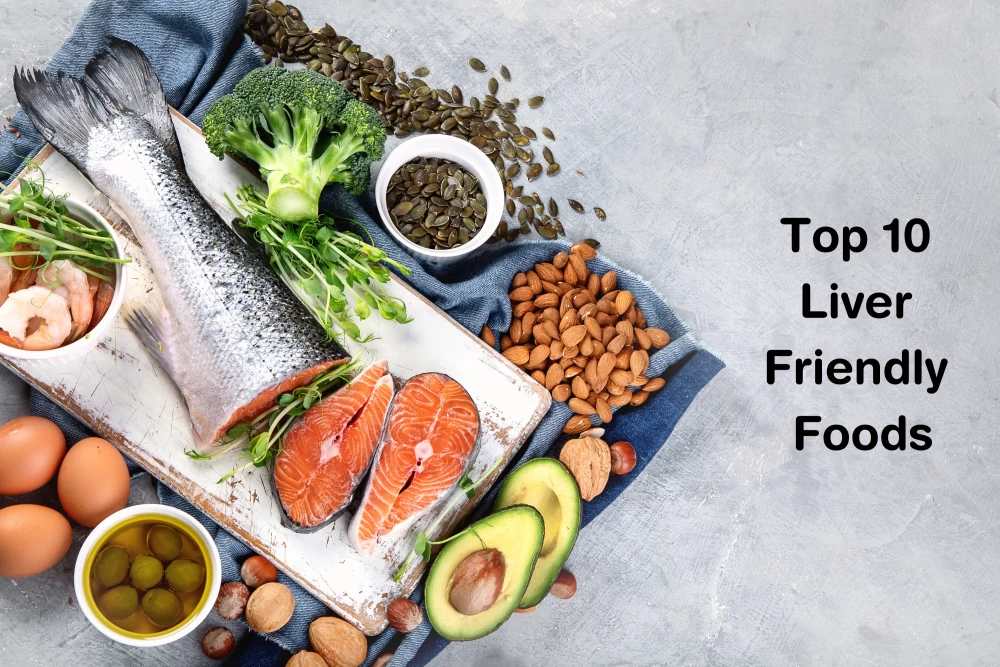
- 25th March 2023
Table of Contents
What is Fatty Liver Disease?
Fatty liver disease is a condition that occurs when excessive amounts of fat accumulate in the liver cells. It can be caused by various factors, including obesity, high cholesterol levels, and diabetes. While it is generally considered to be a benign condition, fatty liver disease can progress into non-alcoholic steatohepatitis (NASH), which can lead to serious liver damage and even cirrhosis. Antioxidants are believed to play an important role in preventing the progression of fatty liver disease. They work by neutralizing free radicals in the body, which are harmful molecules that contribute to cellular damage and inflammation. Studies have shown that antioxidants like vitamin E and selenium can help reduce oxidative stress in individuals with fatty liver disease and may help slow the progression of NASH. While incorporating antioxidant-rich foods into your diet may be beneficial for individuals with fatty liver disease, it's important to discuss any dietary changes with your healthcare provider first. Additionally, supplements should only be taken under medical supervision as they may interact with other medications or have potential side effects.
How Can Antioxidants Protect the Liver?
Fatty liver disease is a condition where there is an accumulation of fat in the liver cells. This can lead to inflammation and damage to the liver, which can cause serious health problems if left untreated. Antioxidants play a crucial role in protecting the liver from this damage by neutralizing free radicals that are produced during fatty liver disease. One way antioxidants protect the liver is by preventing oxidative stress. Oxidative stress occurs when there are too many free radicals in the body, which can cause damage to cells and tissues in the liver. Antioxidants help to neutralize these free radicals, reducing oxidative stress and protecting against further damage. Another way antioxidants protect the liver is by reducing inflammation. Chronic inflammation can contribute to the development of fatty liver disease, as well as other health conditions such as diabetes and heart disease. Antioxidants have anti-inflammatory properties that can help reduce inflammation in the liver and prevent further damage. Overall, incorporating antioxidant-rich foods into your diet or taking antioxidant supplements may be beneficial for protecting your liver from damage caused by fatty liver disease.
Dietary Sources of Antioxidants
Antioxidants are essential nutrients that protect our cells from oxidative stress caused by free radicals. Fatty liver disease is a condition characterized by the accumulation of fat in the liver, leading to inflammation and damage to liver cells. Antioxidants play an important role in preventing and treating fatty liver disease by reducing oxidative stress. There are many dietary sources of antioxidants, including fruits such as berries, citrus fruits, and melons; vegetables such as spinach, kale, broccoli, and beets; nuts and seeds such as almonds, walnuts, chia seeds, and flaxseeds; whole grains such as brown rice and quinoa; spices like turmeric and cinnamon; and beverages like green tea. These foods contain various types of antioxidants including vitamins A, C, E along with flavonoids which work together to protect cells against oxidative damage. Incorporating a variety of antioxidant-rich foods into your diet can help reduce inflammation in the body while also promoting overall health. By reducing oxidative stress on the liver cells through consumption of antioxidant-rich foods may prevent or even reverse fatty liver disease.

Supplementation with Antioxidants
Fatty liver disease is a condition that occurs when there is an excess buildup of fat in the liver. This can lead to inflammation and damage to the liver, increasing the risk of developing serious health conditions such as cirrhosis and liver cancer. Research has shown that oxidative stress plays a significant role in the development and progression of fatty liver disease. Antioxidants are essential substances that help protect against oxidative stress by neutralizing free radicals - unstable molecules produced during metabolism or exposure to toxins. Various studies have suggested that supplementing with antioxidants may help reduce inflammation, prevent cell damage, and improve liver function in individuals with fatty liver disease. Some commonly used antioxidants for fatty liver disease include vitamin E, vitamin C, and selenium. However, it is important to note that while supplementation with these antioxidants may provide some benefits for individuals with fatty liver disease, it should not be considered a substitute for lifestyle modifications such as maintaining a healthy diet and regular exercise routine.
Role of Exercise in Reducing Oxidative Stress
Exercise has been shown to have a significant role in reducing oxidative stress. Studies have indicated that regular exercise reduces the levels of reactive oxygen species (ROS) and increases the activity of antioxidant enzymes, which help to minimize oxidative damage. Furthermore, physical activity stimulates the production of endogenous antioxidants such as glutathione, which neutralizes free radicals. In fatty liver disease, oxidative stress plays a major role in the progression of the condition. Research suggests that implementing an exercise routine can significantly improve liver function by reducing oxidative stress levels. A study conducted on rats with fatty liver disease found that exercise training resulted in decreased ROS levels and increased antioxidant enzyme activity, leading to improved liver function. In conclusion, incorporating regular exercise into one's daily routine can play an important role in reducing oxidative stress and improving overall health. For individuals with fatty liver disease, physical activity is particularly crucial for promoting optimal liver function and minimizing further damage caused by oxidative stress.
Benefits and Risks of Using Antioxidants
Antioxidants play a vital role in our body's defense system against oxidative stress that can cause several diseases, including Fatty Liver Disease. Antioxidants work by neutralizing free radicals that are produced as a result of metabolic processes and exposure to environmental factors such as pollution and radiation. Several studies have shown that consuming foods rich in antioxidants or taking antioxidant supplements can significantly reduce the risk of developing Fatty Liver Disease.However, excessive intake of antioxidants may also pose some risks. Studies have shown that high doses of certain antioxidant supplements may interfere with the body's natural defense mechanisms and increase the risk of chronic diseases such as cancer. Additionally, some antioxidant supplements may interact with prescription medications, leading to adverse effects. In conclusion, incorporating a variety of antioxidant-rich foods into your diet is an excellent way to reduce your risk of developing Fatty Liver Disease while avoiding potential risks associated with high-dose supplementation. If you choose to take an antioxidant supplement, it's essential to consult with your healthcare provider first to ensure it doesn't interfere with any existing medical conditions or medications you're taking.
Conclusion: Finding Balance
In conclusion, finding balance is crucial for maintaining a healthy body and preventing diseases such as fatty liver disease. Antioxidants play a significant role in reducing oxidative stress and inflammation which are major contributors to the development of liver damage. However, it is important to note that supplements should not be relied on solely for antioxidant intake as a balanced diet rich in fruits, vegetables, whole grains and lean proteins can provide sufficient amounts. Furthermore, exercise is also essential in maintaining overall health and weight management which can prevent the accumulation of fat in the liver. Exercise also enhances antioxidant activity which helps protect against oxidative stress-related damage. Practicing mindfulness techniques such as meditation or yoga can further reduce stress levels which can contribute to better liver health. Ultimately, finding balance through a combination of healthy eating habits, regular exercise and stress reduction techniques will greatly benefit those at risk or currently suffering from fatty liver disease. It is never too late to make positive changes towards better health outcomes.














